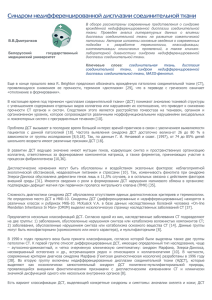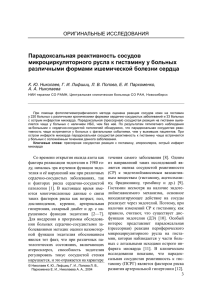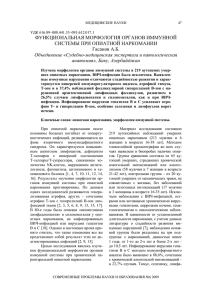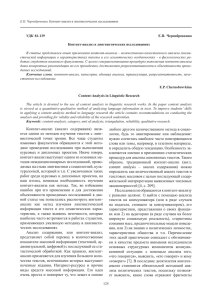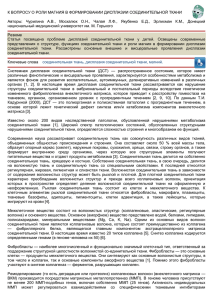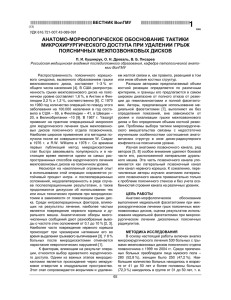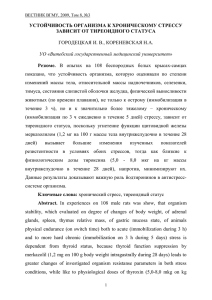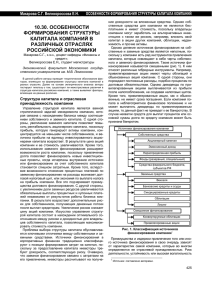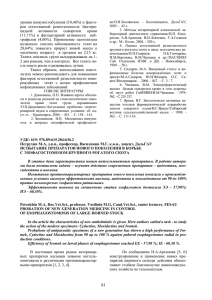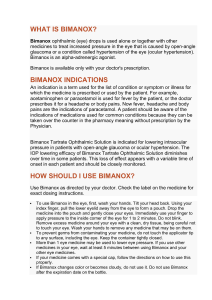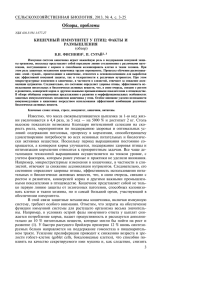2011/12
реклама
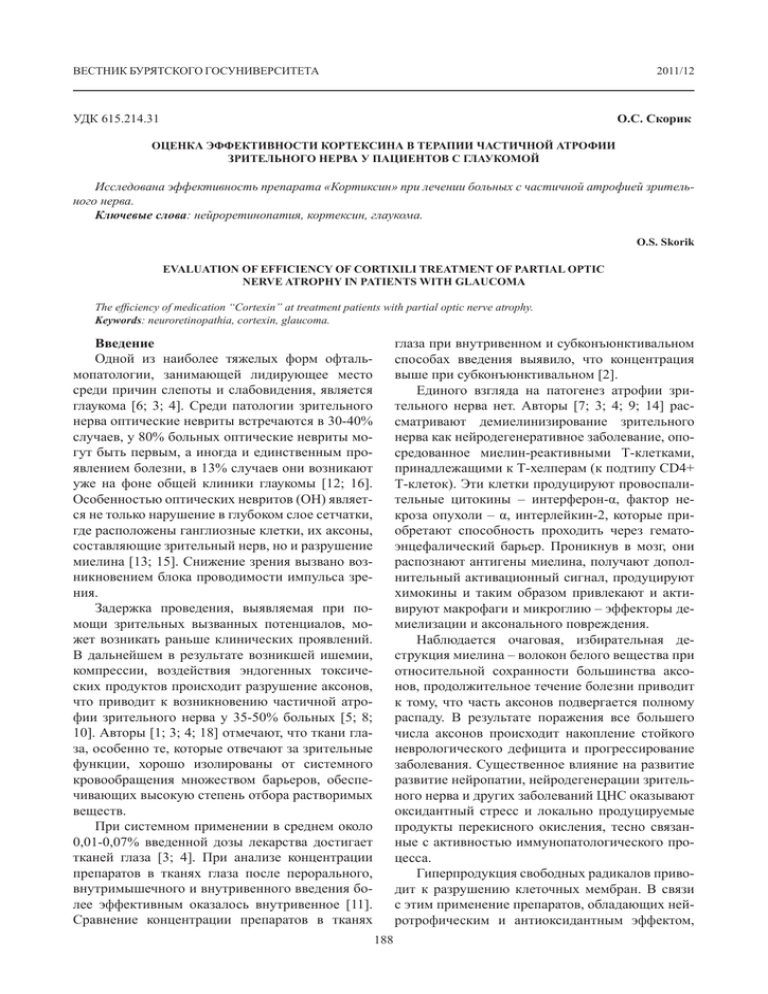
2011/12 . . 615.214.31 « . : , » - , . O.S. Skorik EVALUATION OF EFFICIENCY OF CORTIXILI TREATMENT OF PARTIAL OPTIC NERVE ATROPHY IN PATIENTS WITH GLAUCOMA The eficiency of medication “Cortexin” at treatment patients with partial optic nerve atrophy. Keywords: neuroretinopathia, cortexin, glaucoma. , , [6; 3; 4]. , 80% , , 13% [12; 16]. ) , , , , [13; 15]. . - ). – , – 35-50% , , - , -2, , , , . , – , . . - , - - . , 188 - - , , [11]. , D4+ - - , [3; 4]. - - – . 0,01-0,07% , - ( . , . , , [5; 8; - , , - [2]. [7; 3; 4; 9; 14] , [1; 3; 4; 18] , . 30-40% ( 10]. , , - . , . . . , [3; 4; 17]. , . , , , ( .), , , , , . - , , . – 48 (27%), 35 1 10 , , ), . 5 , , (92 (73%). 33,40 ± 4,31 . , ( , , . - , , - 1. 10 . , . . - , (43 100 100 , , - , . . - . 6 . . – 2003. – 189 ), - , . 3. 1. - , . . - . ), 100,2–0,3, . - , , . - , 10. ( ) . 2. / , 3- . – (49 0,42±0,10, , , 13 . , - , ) , . : - 0,42 ± 0,10 - , - 100 , . . . - , 5. – . 11-14. - // . 2011/12 2. 3. 4. 5. . ., // . – 2010. – .12, 4. – . 139-142. . ., . ., – . – 1998. – . 8. . . .: . . : .– .… 6. , . .– . . . . . . . // - . : 2. – . 3-6. : ., 1996. – 25 . . . . . .– 11. Caprioli J. Slope of peripapillary nerve iber layer surface in glaucoma // Invest. Ophthalmol. Vis. Sci. – 1998. – Vol. 39, 12. – P. 2321-2328. 12. Hicks D., Sahel J. Neuroprotection: the point of view of a neurobiologist // Pharmacotherapy in glaucoma / S. Orgul, J. Flammer ( ds). – Bern, 2000. – P. 280-287. 13. Kendell K., Quigley M., Kerrigan L. et al. Primary open-angle glaucoma is not associated with photoreceptor loss // Invest. Ophthalmol. Vis. Sci. – 1995. – Vol. 36. – P. 200-205. 14. Park K., Cozier F., Ong O. Induction of heat shock protein 72 protects retinal ganglion cells in rat glaucoma model // Invest. Ophthalmol. Vis. Sci. – 2001. – Vol. 42. – P. 1522-1530. 15. Quigley H., Vitale S. Models of open-angle glaucoma prevalence and incidence in the United States // Invest. Ophthalmol. Vis. Sci. – 1997. – Vol. 38. – 1 – P. 83-91. 16. Seki M., Tanaka T., Matsuda H. Topically administered timolol and dorzolamide reduce intraocular pressure and protect retinal ganglion cells in a rat experimental glaucoma models // British Jour. of Ophtalmol. – 2005. – Vol. 89. – P. 504-507. 17. Tezel G., Yang X. Caspase – independent component of retinal ganglion cell death in vitro // Invest. Ophthalmol. Vis. Sci. – 2004. – Vol. 45. – P. 4049-4059. 18. Van Adel B., Kostic C. Delivery of cillary neurotrophic factor via lentiviral mediated transfer protects axotomized retinal ganglion cells for an extended period of time // Human Gene Therapy. – 2003. – Vol. 14. – P. 103-115 - . – 2006. – 135 . ., 2000. – 38 . . – 1998. – . . 7. . 8. . ., // - . … - // IV . . – 2005. – . 324-332. 9. Birnbaum G., Skaf M. Stress proteins: their role in the normal central nervous system and in the disease states // Springer Semin. Immunipathol. – 1995. – Vol. 17. – P. 107-118 10. Boehm A., Breidenbach K. Visual function and perfusion of the optic nerve head after application of centrally acting calcium-channel blockers // Graefes Archive for Clin and Experim. Ophthalmol. – 2005. – Vol. 214. – P.34-37. – . 670000, . - , . 12, . 236585, -mail: [email protected] Skorik Oleg Sergeevich – postgraduate student, department of hospital surgery, Buryat State University. 670000, Ulan-Ude, Pavlov str., tel.236585, -mail: [email protected] . . 615.735.-002 , , » , . : , , . , , « . , , . . » « , - O.S. Skorik, M.P. Ryabov THE ROLE OF KORTEXIN AND EPYTALON IN THE THERAPY OF HYPERTENSIVE ANGIORETINOPATHY It has been stated that the signiicant factor in pathogenesis of hypertensive angioretinopathy is the dysfunction of endothelium conditioned by high intensity of free radical reactions and oppression of enzymes activity of 190
